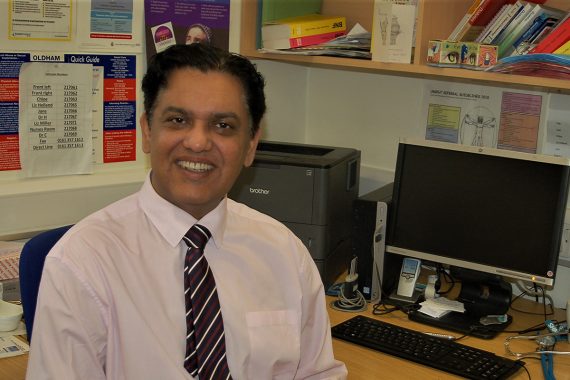It’s an anathema to many health carers to adhere to a league table of need. Surely, every patient, whatever their ache, pain or sickness, deserves our support, and what may appear innocuous can, of course, morph into a significant condition.
However, we are where we are with Covid, and already reports of little or indeed no vaccine supplies at GP surgeries in particular are being made manifest.
So, we’re being told by Government to prioritise our choice of who receives the Covid vaccine, and and when. The issue with generalisation, though, is that someone always falls between the cracks, and it should be we as clinicians who make those decisions.
In this case, bracketing by age may mean that a near 80-year-old who’s endlessly young and in the best of health would be offered the vaccination first. Whereas the teenager with multiple health conditions, living in poverty and with poor access to healthcare, would not.
Recently, my charity, Homeless-Friendly, helped Oldham Council and NHS Oldham CCG to innoculate homeless people. Rough sleepers currently rank sixth in line for the vaccine, in the age 16-64 category. That is because, tragically, their average life span is usually around 47 years.
Thankfully, we reside in Oldham, a borough with a compassionate bias towards the poor and one which is a healthcare leader, including in the birth of the world’s first test tube baby in 1978.
Not being a fan of league tables either, I don’t really want to say that the homeless are the most vulnerable in our society. But there is a strong argument to say so.
Susceptibility to viral infection; low immunity; the damaging effects of malnutrition, hypothermia and addiction; and a high propensity for falls and heart attacks – homeless people are probably also living with undiagnosed conditions and too often appear at A&E units when it’s too late.
Speaking with Lee and Kelly, plus another homeless person who experiences seizures every day of his life, you’ll learn that the business of survival means that rough sleepers aren’t spending their days reading, listening, and watching the media to find out the latest updates on the pandemic. Lockdowns have resulted in a worrying deterioration in basic hygiene too, because many public toilets and others located in cafes and pubs are closed.
The decision was made by the local authority to allow the clinic based upon the frailty of homeless patients. Homeless people’s vulnerability is that of someone aged around 80.
Response to the clinic has been almost wholly positive, but what criticism there has been seems based on a fundamental ignorance around the issues that homeless people face. And that sometimes-unknowing benightedness permeates even the health service.
The Homeless Friendly charity was created because rough sleepers told us that they were being refused primary healthcare due to a lack of permanent address. This strategy was based on myth, since national guidelines say no such thing.
I believe that the charity, plus its partners in primary, acute and community care, has made a huge cultural shift towards offering those without a fixed abode the same quality healthcare the rest of society receives. And what a powerful message that sends to those at their lowest ebb – that someone cares for them, and that they’re a valid and respected member of our community.
Together with our friends at charities such as The Big Issue, we’ve written a letter to health secretary Matt Hancock to include the homeless in the premier category for Covid vaccinations. We’ve also urged him to extend those first innoculations to the many carers – including volunteers from the NHS – who work to ease the lives of those living with the heartache of homelessness.
As yet, we haven’t received a reply to any of our communications, and instead we had to appeal to a Greater Manchester population struggling economically themselves, to fund masks and hygiene products for rough sleepers.
As I reminded Mr Hancock, care for the vulnerable is part of the moral and British code of ethics which helped create the NHS. Where care was available to all free and at the point of entry.
And that means the homeless, too.
Dr Zahid Chauhan OBE is a national health campaigner and GP partner in Greater Manchester. You can follow him on Twitter at @chauhanzahid
Pulse October survey
Take our July 2025 survey to potentially win £1.000 worth of tokens













Laudible independent thinking. Similar issues for those with LD in community group homes with reduced life expectancy and significant health risks to the most vulnerable groups, yet group 6. NHSE Command and Control never learn that we GP’s on the ground are quite good at risk assessing and quietly getting on with things without their frequent and ever changing reactive politicised ‘guidance’
Excellent work. Do stay safe in your altruism and purpose.